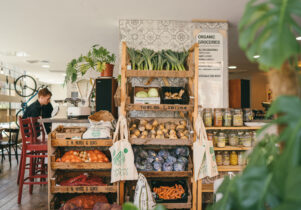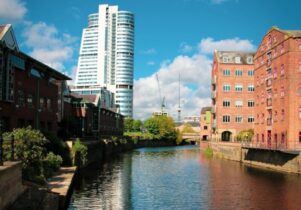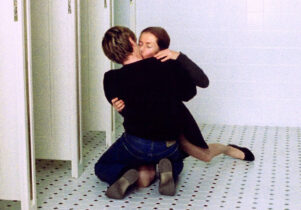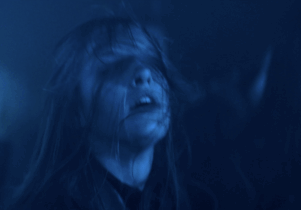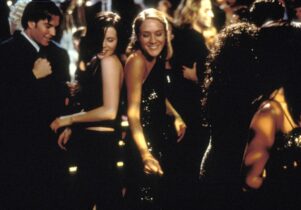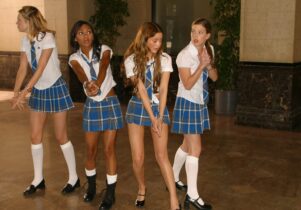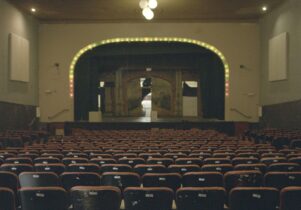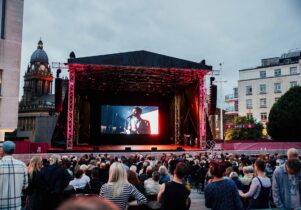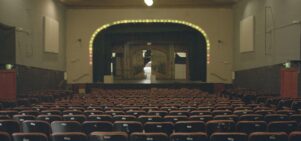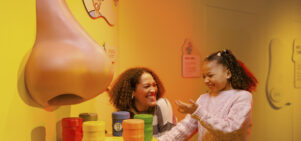Suspiria – Streaming on Amazon Prime Video
Tom Grieve, Cinema EditorBook now
Suspiria
Always double check opening hours with the venue before making a special visit.
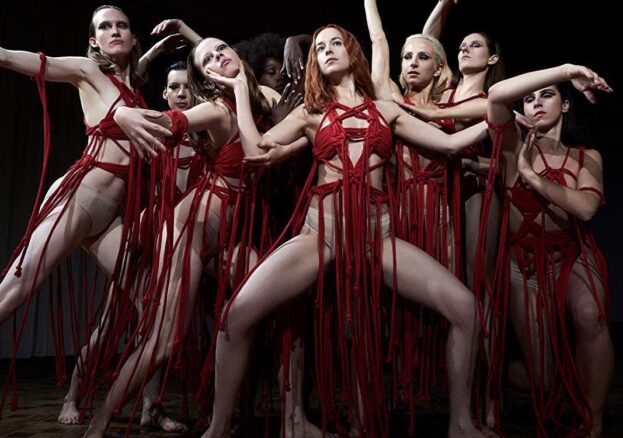
There was widespread outrage within the horror community when it was announced that Luca Guadagnino was to remake Dario Argento’s iconic 1977 film, Suspiria. Remakes draw ire no matter who is attached, but it is fair to say that the sensually-minded, distinctly art-house Italian director behind I Am Love and A Bigger Splash was not the man most would have had at the helm of any reimagining. Expectations changed with last year’s release of Guadagnino’s Call Me By Your Name, the summertime gay romance starring Timothée Chalamet and Armie Hammer which became something of a phenomenon thanks to its laidback eroticism and tender performances. The horror crowd might still have been sceptical, but Suspiria suddenly became one of the most anticipated films of the year in wider film circles — especially when news broke that Radiohead’s Thom Yorke would be providing the score.
So how does the new version stack up? By not trying to outdo or replicate Argento’s phantasmagoric original, that’s how. Guadagnino takes the skeleton of Argento’s story – about an American dancer who arrives in Berlin to study at a prestigious dance school only to discover it is run by a coven of witches — but he variously expands and burrows into it, finding new angles and points of interest. Dakota Johnson (A Bigger Splash, 50 Shades of Grey) replaces Jessica Harper (who appears here in a different role) as Susie Bannion, a prodigious young dancer hoping to study at the elite Markos Dance Academy in West Berlin. There is a spot open in the Academy due to lead dancer, Patricia (Chloë Grace Moretz), having recently fled under mysterious circumstances, and after an audition for the imposing Madame Blanc (Tilda Swinton) Susie is admitted based on raw talent.
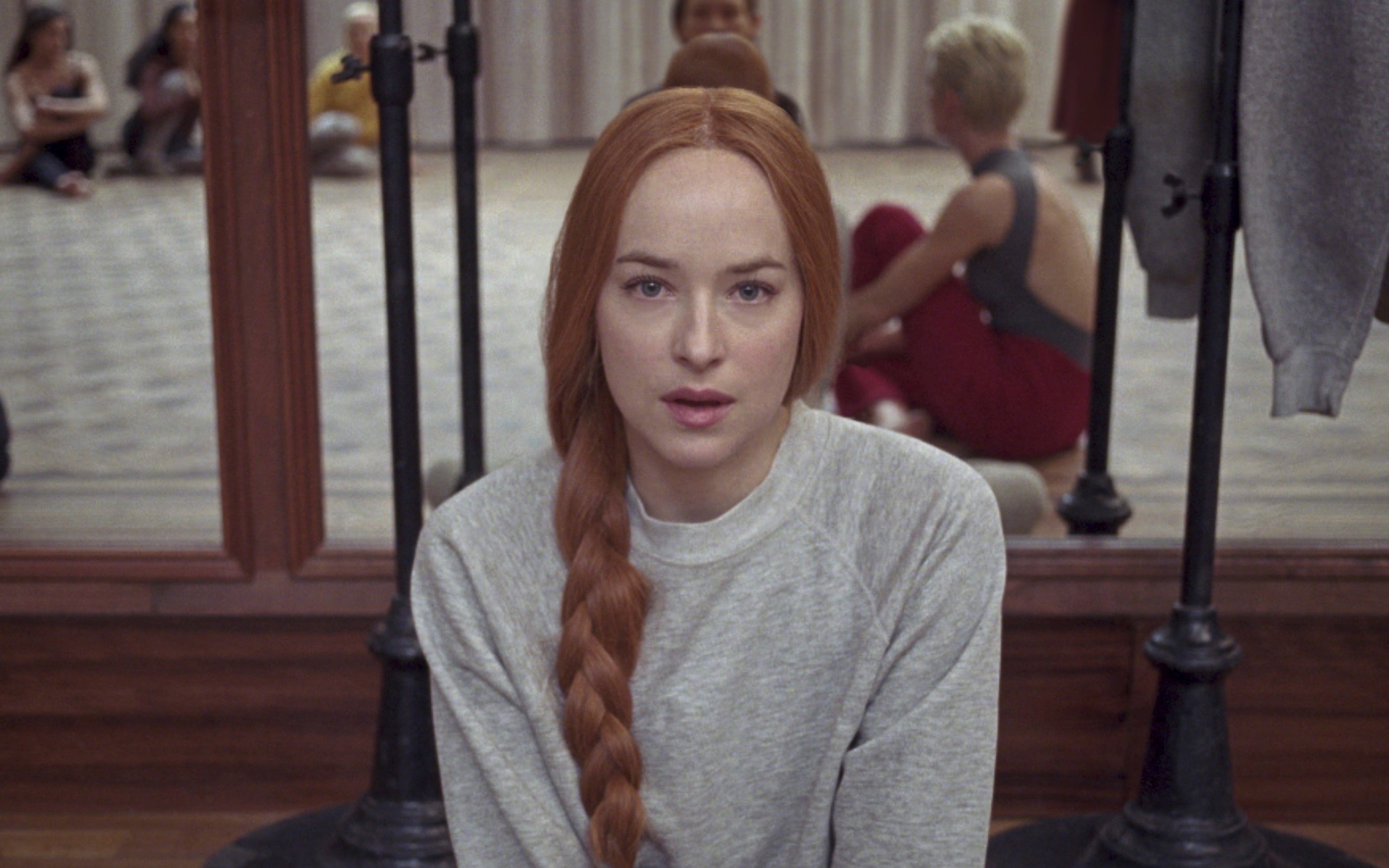
Berlin is grey, and the weather slowly drifts from drizzle to snow. It is late 1977 (the same year Argento’s film was released) and there are punks on the subway and soldiers in the street. The labyrinthine dance school sits opposite the Berlin Wall, and there are divisions within too, as the all-female staff quarrel over Patricia’s disappearance. It seems the talented dancer was marked for a role as kind of conduit through which they could channel some ancient, dark magic — but the witches ponder whether Susie could prove a stronger vessel. In the films first truly disturbing sequence, they test her power by supernaturally twinning her with Olga, a dissenting student. As Susie dances a violent improvisation, straining to impress in one room, Olga’s body unnaturally twists and contorts in time with her in another. Guadagnino employs discordant sound design and disorientating close-ups as her bones snap and rip through her flesh, while blood and urine commingle in a pool on the floor.
Guadagnino employs a drab colour scheme, which combined with the ‘70s Berlin setting has drawn comparisons with the work of the provocative New German Cinema auteur, Rainer Werner Fassbinder – a comparison aided by the casting of several of Fassbinder’s recurring players amongst the coven. Whether or not such comparisons are productive, it is inarguable that Guadagnino has intentionally distanced himself from the dashing pinks and vibrant blue lighting which visually defined Argento’s extravagant original. For its part, Yorke’s score harks back, whilst adding its own creepy, inharmony to proceedings. The new film is more obviously grounded, more deliberately dialled into Berlin’s political situation and it is certainly tuned into discussions around gender and representation in a way that is entirely contemporary.
Guadagnino provides Susie with a backstory which he fills in through flashbacks: she’s from remotest Ohio and raised in a restrictive, Mennonite household. She is no meek farm girl though, and we learn that as a dancer she is largely self-taught from viewing videotapes and the big city performances to which she would hitchhike after running away from home. In comparison to her oppressive background, life in Berlin is a salve – even taking into account the nightmarish visions which punctuate her sleep and the rumours of witchcraft swirling amongst her fellow students. Indeed, Susie seems unperturbed by the suspicious events occurring around her, moving to take a more active role in the darkness brewing behind the scenes as the film progresses towards a blood-curdling ritual which impresses as a wild set-piece, stylistically unhinged from the rest of the film.
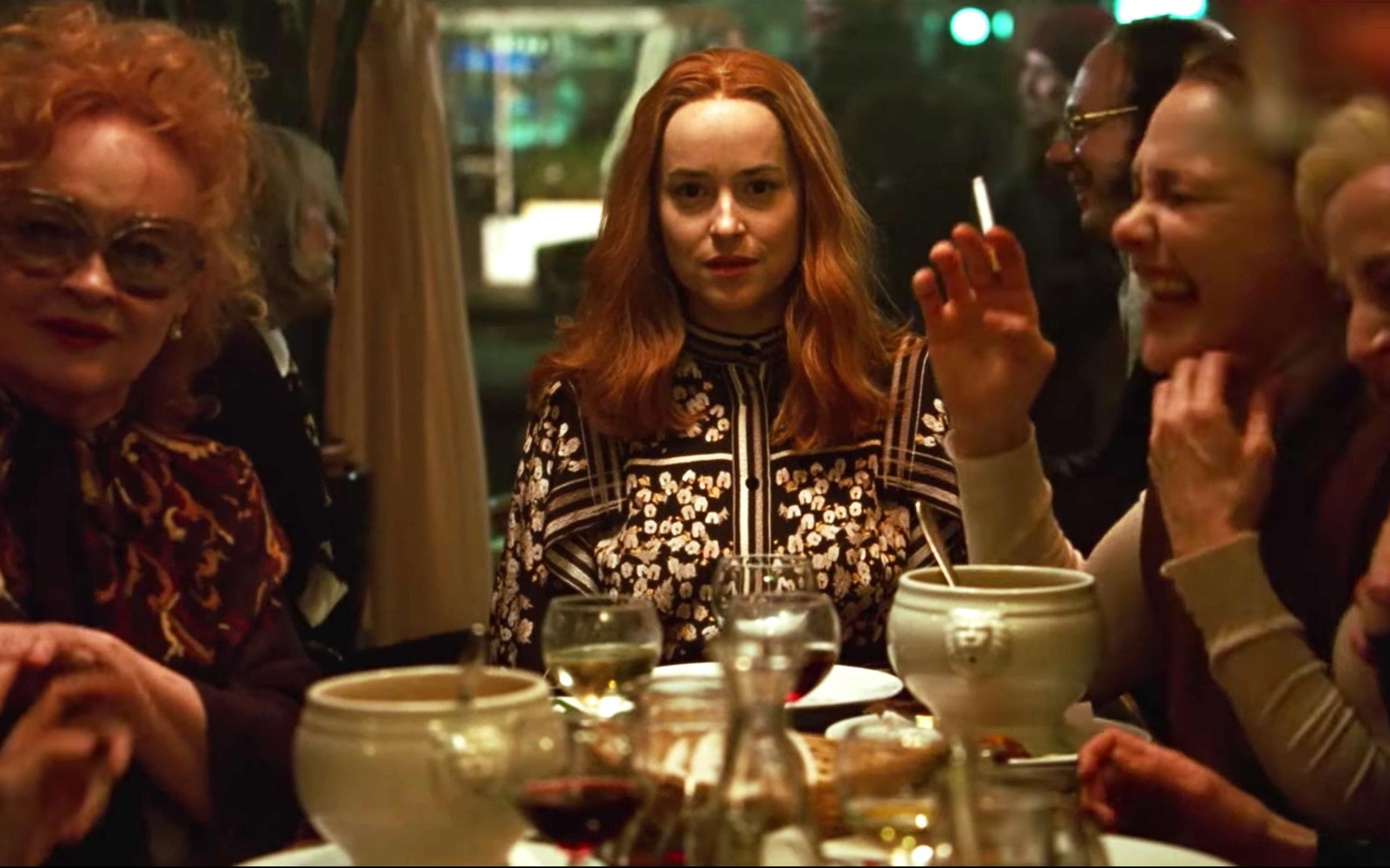
This is a slow-burn affair and Guadagnino stretches the film out to nearly two and a half hours, but there’s plenty to appease those looking for blood. The director has spoken of being influenced by feminist art and the film was actually the subject of a lawsuit (now settled) by Cuban artist Ana Mendieta’s estate which alleged copyright infringement based on some images which appeared in an early trailer. The ethics of drawing from feminist art for imagery in a horror film are dicey to say the least, but the cursed visions presented in Suspiria are effective in so far as generating a sense of terror which shocks, lingers and disturbs. The director presents a femininity which is complicated and powerful; he has called this a feminist film, and if that statement is perhaps dubious, we can say that the way in which he allows his characters to unmoor themselves from traditional morality is, at least, interesting.
The angular beauty and aesthetic horrors of Dario Argento’s original film were enough to make it a classic. In Guadagnino’s film, the sinister goings on in the Markos Dance Academy take place against the backdrop of the real-life hostage-takings and murders of the German Autumn (begun by the left-wing Red Army Faction’s kidnapping of industrialist Hanns Martin Schleyer.) There is a subplot which evokes the horrors of Nazism, while Susie is provided a background so that we may better understand her character. In layering his themes and these moments of historical resonance, Guadagnino coats Suspiria with a veneer of taste and respectability that simply isn’t necessary. The director’s talent is for mood and incident — thankfully there is enough of both here to make Suspiria a film to recommend.
Zodiac is available to watch on Amazon Prime Video with a subscription.





